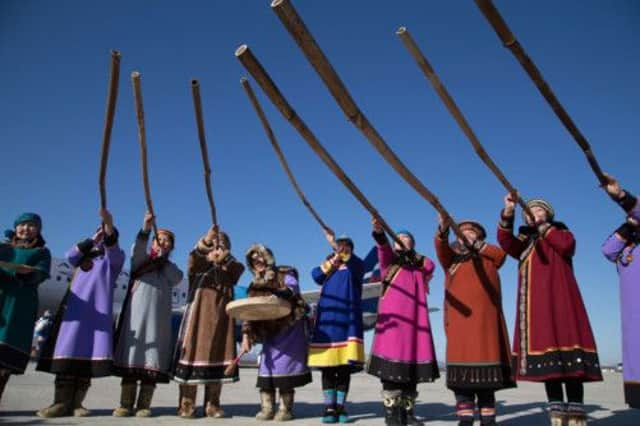Russia cranks up security for 2014 Winter Olympics


With Islamist insurgency raging across the North Caucasus Mountains east of the Black Sea resort, Russia’s security agencies have had carte blanche to ensure that nothing spoils president Vladimir Putin’s pet project.
Anyone wanting to attend the games that open on 7 February will have to buy a ticket online from the organisers and obtain a “spectator pass” for access. Doing so will require providing passport details and contacts that will allow the authorities to screen all visitors and check their identities upon arrival. Guests will be asked to wear their passes while attending all Olympic events.
Advertisement
Hide AdAdvertisement
Hide AdRussian government officials and Sochi organisers say the security pass is necessary to keep the games safe. Some critics, however, say that it will do little to deflect a terror threat from people already in the Sochi area – as potential terrorists would have had years to settle within the security zone.
“This kind of pass, this kind of measure might stop some people from going to the Olympics… but this kind of measure can’t deal with the people who actually live in the area,” said Andrei Soldatov, an independent Moscow-based security analyst.
While China was criticised for undeclared visa bans on people from some countries in the Middle East and Africa during the 2008 summer Olympics in Beijing, it introduced identity checks only for the opening and closing ceremonies.
Organisers of the 2012 London Olympics brought in some unprecedented security, including air patrols, surface-to-air missiles on rooftops and an aircraft carrier on the River Thames, but they did not require any passes in addition to tickets.
The tens of thousands of police, security agents and army troops to be deployed in Sochi are double the contingent for the London games, said Matthew Clements, an analyst at Jane’s military publications.
He added: “The Sochi security effort is much more far-reaching. This also represents the fact that there is an active insurgency operating in the near vicinity.” Militants aspiring to create an Islamic state in the North Caucasus have spread across the region after two separatist wars in Chechnya. The epicentre of the rebellion is in the Caspian Sea province of Dagestan, about 300 miles east of Sochi, where rebels launch near daily attacks on police and officials.
Mr Clements said the security zone around Sochi stretches 60 miles along the Black Sea coast and up to 25 miles inland. Russian forces include special troops equipped for patrolling the forested mountains towering over the resort, speed boats to patrol the coast and sonars to spot submarines.